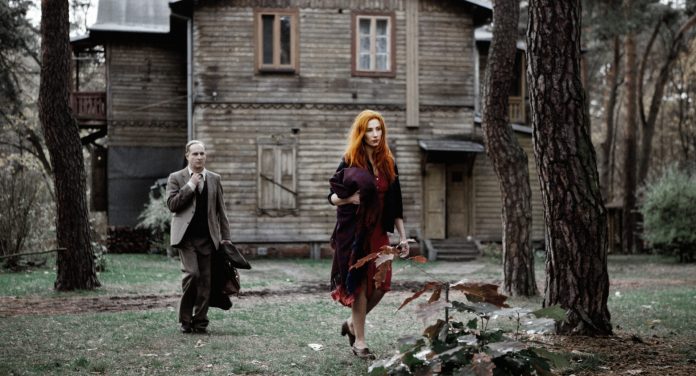(THIS ARTICLE IS MACHINE TRANSLATED by Google from Norwegian)
And There Was Love in the Ghetto is an essayistic film based on the memoirs of Marek Edelman with the same title. It is a personal and meticulous piece of work. Edelman worked as a visor boy at a children's hospital in Warsaw in the summer of 1942, the time of the "Gross action Warsaw" – the gathering of the Jewish population of Warsaw to be destroyed. At the same time, he was also one of the founders and leaders of the Jewish Fighting Organization (ZOB) – one of the Jewish resistance factions in Poland.
It is said that the film was made at Marek Edelman's request, expressed shortly before his death in 2009. But during the interview he is sometimes angry and upset while smoking one cigarette after another. It is as if we are seeing his actual memories on the canvas; they are pulled out of his mind and played out in front of our eyes.
Thousands of Jews were led through the Umschlagplatz every day.
One place he describes the flocks of people driven to Warsaw Cover area a German word that refers to the place where goods are transhipped before being transported by train. Thousands of Jews were led through Cover area weekday. Occasionally, they had to spend the night there while waiting for the freight trains to bring them to death.
As the interview questions become more detailed, we get the feeling that the interviewer is trying to twist the last memories out of Edelman and bring him to the breaking point: Was the row of people walking toward the train quiet or loud?

Directors Jolanta Dylewska and Andrzej Wajda
"Quiet," says Edelman, "why should they be loud? […] It is not true that people screamed. The stories that they screamed in despair are not true. On the recordings you see that people walked quietly. So why do you ask? ”
The interviewer replies, "For you to say that."
Edelman describes how he constantly looked in the herds for friends or comrades he could try to save, pulling out of the crowd. "It was simply a flock. A formless flock of people. If I saw someone I knew, I woke up. "
Close-up portraits
What makes this movie so special is it is intensely personal in its descriptions and stories Mark Edelman. The spectator becomes acquainted with a time, a place, a human being. You get a deeper insight into who it was that was driven together and eventually killed during this terrible period.
The stories get a personal and intimate visual touch through close-ups of faces.
The stories get a personal and intimate visual touch through close-ups of faces. Edelman's face, which is portrayed throughout the film in the same picture frame; faces of Jews from the archive of the time as well as fresh recordings with dramatizations of Edelman's stories. All these footage is clipped together, a technique that would not necessarily have worked as such dramatization could have given the film an exaggerated dramatic expression. However, the new footage and archival footage appear to add to the film as a whole, and as it moves forward, they provide a more complete picture of the actual people and events being produced. The new recordings include clothing and other elements from the war years, but since the recordings have been made recently, the characters are considered with today's eyes and it is easier to identify with them. The camera's slow-motion movements add a dream-like element.

Directors Jolanta Dylewska and Andrzej Wajda
Love and death
"What I'm saying is not true. This is the mysterious thing I saw in the whole thing, "says Marek Edelman. The camera work is really a physical representation of this statement.
What Edelman describes is stories he previously told in his memoirs: love among people he had first-hand knowledge of, friends and co-workers, colleagues. For example, a story about an aborted sexual encounter with Dola, which he thought was intensely beautiful. This is then followed by her own story of love and death. In another story, a nurse from his hospital – Mrs. Tenenbaum – commits suicide in order for her daughter to take over her coveted "life number" to prevent the Nazis from getting rid of her. In a third, a spontaneous meeting is depicted between a liaison girl and a lonely man, a meeting which is to awaken a strong love between them and which keeps them up in time under constant terror.
All these stories come from Edelman's mouth, the film's voice. They are personal and heartbreaking, filled with love, hope and often death.
And There Was Love in the Ghetto is not a historical account, not a teaching of facts. It is a beautiful, cheerful and painful collection of memories of one man who lived during World War II. The spectator is sucked in and held in his memory; seeing what he saw, feeling something of what he felt. It is an honest film about love from one's perspective during the atrocities and tragedies of the Holocaust, which is often viewed from a more general and impersonal perspective.
The film will be shown at the Hotdoc film festival in April.


